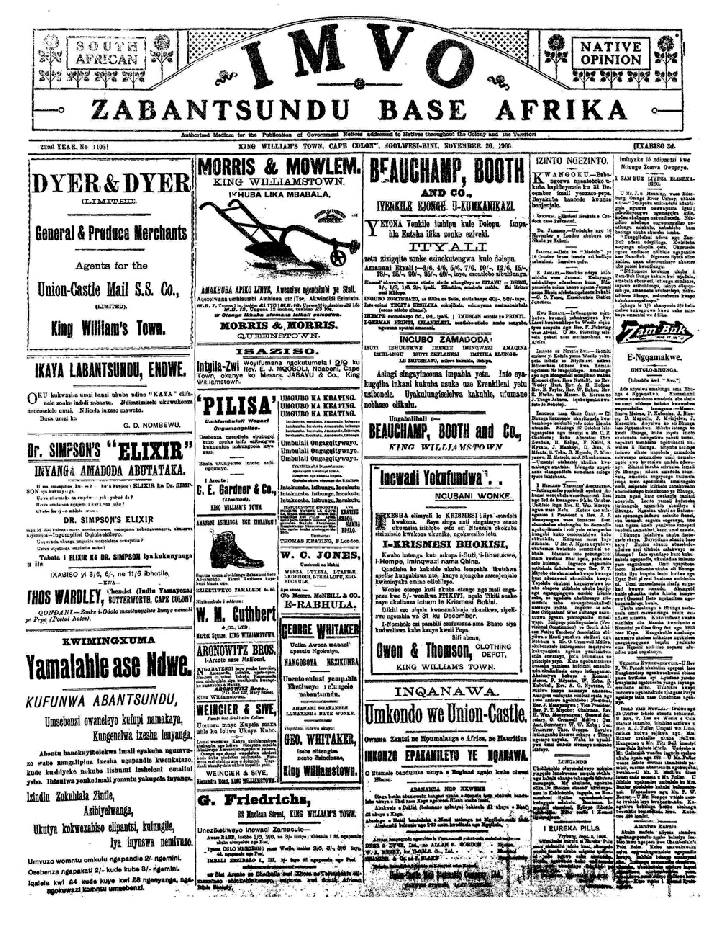 The second was baaskap, which was practiced in the Transvaal and Orange Free State or thirdly, through the policy of protective segregation which had been used in Natal and parts of the Cape. In addition to finding a common policy for treating Africans, the British and Boers also tried to find common ground on how to treat Indians. There were about 100,000 Indians living in Natal and about 10,000 in the Transvaal at the time.
The second was baaskap, which was practiced in the Transvaal and Orange Free State or thirdly, through the policy of protective segregation which had been used in Natal and parts of the Cape. In addition to finding a common policy for treating Africans, the British and Boers also tried to find common ground on how to treat Indians. There were about 100,000 Indians living in Natal and about 10,000 in the Transvaal at the time.
Some Africans who benefitted from the Cape system such as John Tengo Jabavu distanced themselves from other Africans as a way to preserve their crumbs they had received from their colonial powers. John Tengo Jabavu received financial to start a newspaper, Imvo Zabantsundu (African Opinion). Consequently, the newspaper hardly criticized any aspects of white rule. Jabavu died in 1921 having accomplished nothing in furthering the cause of Africans.
The Baaskap system adopted by Boers proclaimed, “There shall be no equality in State or Church between white and black.” Many colonialists adopted the baaskap system because it protected their high wages in the mines and in industries. Africans were not allowed to occupy high skilled labor jobs and therefore were limited in the income they could earn.
The British colonialists tried a system of separation but land was becoming an issue. They established protectorates in Basutoland, Bechuanaland and Swaziland. At the same time, the population of Indians in Natal was also growing. Indian contract laborers who worked on sugar plantations were thought to be disciplined and uncomplaining workers and some moved into trading and other service industries. Soon they were viewed as a threat to unskilled Dutch and British workers so the British and Boers passed legislation to control their migration.





2 responses to “South Africa After the Boer War: Baaskap and Segregation”
This is the reason for income inequality in South Africa. It must be understood to be corrected.
Javabvu is like most Africans he sold his soul for 20 pieces of silver. This is shameful because it paved way for apartheid and the loss of minerals, wealth and land.